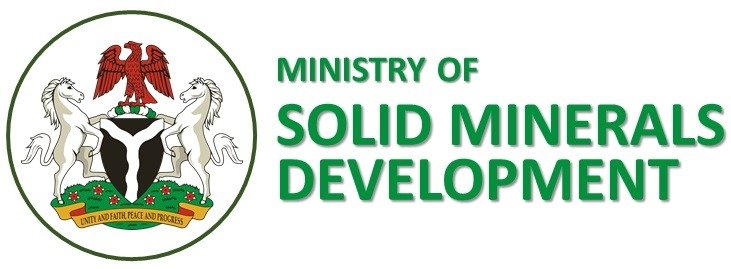Understanding the Current Landscape of Nigeria’s Mining Sector
Nigeria’s mining sector has long been recognized for its vast mineral wealth, yet it continues to be underexploited. With an array of minerals including gold, coal, limestone, tin, and gemstones, Nigeria holds considerable potential for growth in this industry. According to recent reports, the nation is estimated to possess significant reserves of these resources, which could contribute substantially to the country’s economic development. However, the mining sector’s contribution to Nigeria’s Gross Domestic Product (GDP) remains relatively low, primarily due to historical over-reliance on oil and gas exports.
The current landscape of Nigeria’s mining industry is characterized by a mix of local and foreign players, including exploration companies and service providers. Key stakeholders are increasingly acknowledging the importance of attracting Foreign Direct Investment (FDI) to rejuvenate and expand the sector. Enhanced investment can lead to improved technologies, increased expertise, and better infrastructure, which are crucial for unlocking the full potential of Nigeria’s mineral resources.
Despite the promising outlook, the mining sector is not without challenges. Bureaucratic inefficiencies significantly hamper the ease of doing business in Nigeria, creating a complex regulatory environment that can deter potential investors. Additionally, funding constraints limit the ability of local companies to engage in exploration and development activities. Many industry stakeholders have called for reforms to address these issues, highlighting the urgent need for a systematic overhaul of regulatory frameworks and financial support mechanisms.
In light of these challenges, it is essential for the government to foster a more conducive environment for mining investments. By doing so, Nigeria can attract the necessary FDI to transform its mining sector into a pivotal contributor to economic growth and development. The future of Nigeria’s mining industry hinges on strategic investments and reforms, thereby ensuring that it can thrive in the ever-evolving global market.
Identifying Barriers to Investment in Nigeria’s Mining Industry
Nigeria’s mining sector holds significant potential for attracting foreign direct investment, yet several barriers impede progress in this crucial industry. One of the primary challenges faced by potential investors is the bureaucratic bottlenecks that characterize the regulatory environment. Companies often encounter a myriad of permits and approvals, leading to delays that discourage investment. According to a report by the Nigerian Extractive Industries Transparency Initiative (NEITI), lengthy processes for securing licenses can extend for several months, creating uncertainty for investors.
Moreover, the complex regulatory frameworks governing the mining sector add layers of confusion. Inconsistent enforcement of regulations and frequent changes in policies create a challenging landscape for foreign investors who often prefer stable and transparent environments. This unpredictability not only drives away potential stakeholders but also stifles the growth of existing mining entities, making the sector less appealing.
Another significant barrier is the insecurity prevalent in various mining regions. Instances of violence, kidnappings, and conflicts among local communities and illegal miners pose serious risks for investment. Reports indicate that investors operating under these conditions face threats to their workers and disruptions to their operations, which can lead to substantial financial losses. Addressing these security concerns is crucial for creating a conducive environment for foreign investment.
Inadequate infrastructure further exacerbates the challenges faced by investors in Nigeria’s mining industry. Many regions lack essential facilities such as roads, power supply, and transportation networks, making it difficult to extract and transport minerals efficiently. The World Bank has noted that poor infrastructure contributes to elevated operational costs, compelling foreign companies to reconsider their investment decisions.
Lastly, underfunding is a persistent issue affecting the mining sector’s potential. Many local companies struggle to secure adequate financing, limiting their ability to explore and develop mining sites. This situation not only hampers domestic operators but also deters foreign entities that may seek partnerships with local firms. Addressing these barriers is crucial for unlocking the vast investment opportunities that Nigeria’s mining industry has to offer.
Strategies for Overcoming Challenges and Attracting FDI
Overcoming the challenges faced by Nigeria’s mining sector requires a multi-faceted approach that can effectively attract foreign direct investment (FDI). One significant strategy involves implementing comprehensive policy reforms aimed at creating a conducive environment for investment. These reforms should focus on enhancing transparency in regulatory practices, reducing bureaucratic delays, and simplifying the licensing process for mining operations. By establishing a predictable and stable legal framework, Nigeria can boost investor confidence and incentivize foreign entities to engage in the mining industry.
Additionally, improving the regulatory environment is crucial for reinforcing the mining sector’s reliability. The establishment of clear guidelines for environmental protection and community engagement will not only encourage compliance but also foster trust between mining companies and local communities. Strengthening regulatory bodies to ensure effective oversight and enforcement can further enhance credibility in the sector, making it more appealing for foreign investors who are often wary of potential legal and operational challenges.
Security remains a paramount concern in attracting FDI to Nigeria’s mining sector. Thus, enhancing security measures through collaboration with local law enforcement and leveraging technology for surveillance can mitigate risks associated with mining operations. Implementing community-based security initiatives can also create a partnership approach, in which local populations feel invested in the success of mining ventures, thereby reducing potential conflicts.
An increase in financial support from both the government and private investors can also play a pivotal role in bolstering the mining sector. Offering incentives, such as tax breaks or grants, can stimulate investment while ensuring alignment with national economic objectives. Public-private partnerships (PPPs) can further facilitate this process by pooling resources and sharing both risks and rewards. International collaboration also stands to enhance the sector’s appeal, as foreign investors can bring vital expertise, technology, and networks that stimulate the growth of Nigeria’s mining capabilities.
By implementing these strategies, Nigeria can address the challenges in its mining sector, thus creating a more attractive environment for foreign direct investment.
Case Studies and Success Stories in Attracting Investment
Nigeria’s mining sector has witnessed several notable success stories where strategic approaches have led to substantial foreign direct investment (FDI). These cases not only highlight effective practices but also provide valuable lessons for investors and stakeholders aiming to navigate the challenges inherent to this industry.
One significant example is the establishment of the Segilola Gold Project, operated by Thor Explorations. The project, located in Osun State, has attracted considerable investment due to its strategic planning and the implementation of robust mining practices. By ensuring regulatory compliance and engaging with local communities, Thor Explorations established a strong foundation that mitigated risks often associated with investing in Nigeria’s mining sector. The company’s focus on transparent communication and community development initiatives has fostered goodwill, making it an exemplary case of how to navigate investment challenges successfully.
Another successful investment scenario involves the Nigerian subsidiary of the global company, Multinational Corporation (MNC), which specializes in mineral exploration and extraction. Their proactive approach included forming strategic partnerships with local businesses to streamline operations and improve supply chain dynamics. By investing in local capacity-building initiatives and technology transfer, this MNC has demonstrated that integrating local expertise and resources not only enhances operational efficiency but also attracts further foreign investment due to improved stakeholder relations.
Additionally, the case of A Nigerian Mining Company, which focuses on limestone extraction, showcases resilience in overcoming obstacles such as regulatory setbacks. Through meticulous planning and engagement with governmental agencies, the company successfully secured the necessary permits while establishing a responsible operational framework. This adaptability has not only led to increased productivity but has also reinforced the perception of Nigeria as a viable destination for mining investment.
These case studies underscore the importance of strategic approaches in overcoming challenges and drawing foreign direct investment into Nigeria’s mining sector. Stakeholders can glean actionable insights by examining these successful instances, positioning themselves to replicate the achieved outcomes in their ventures.




